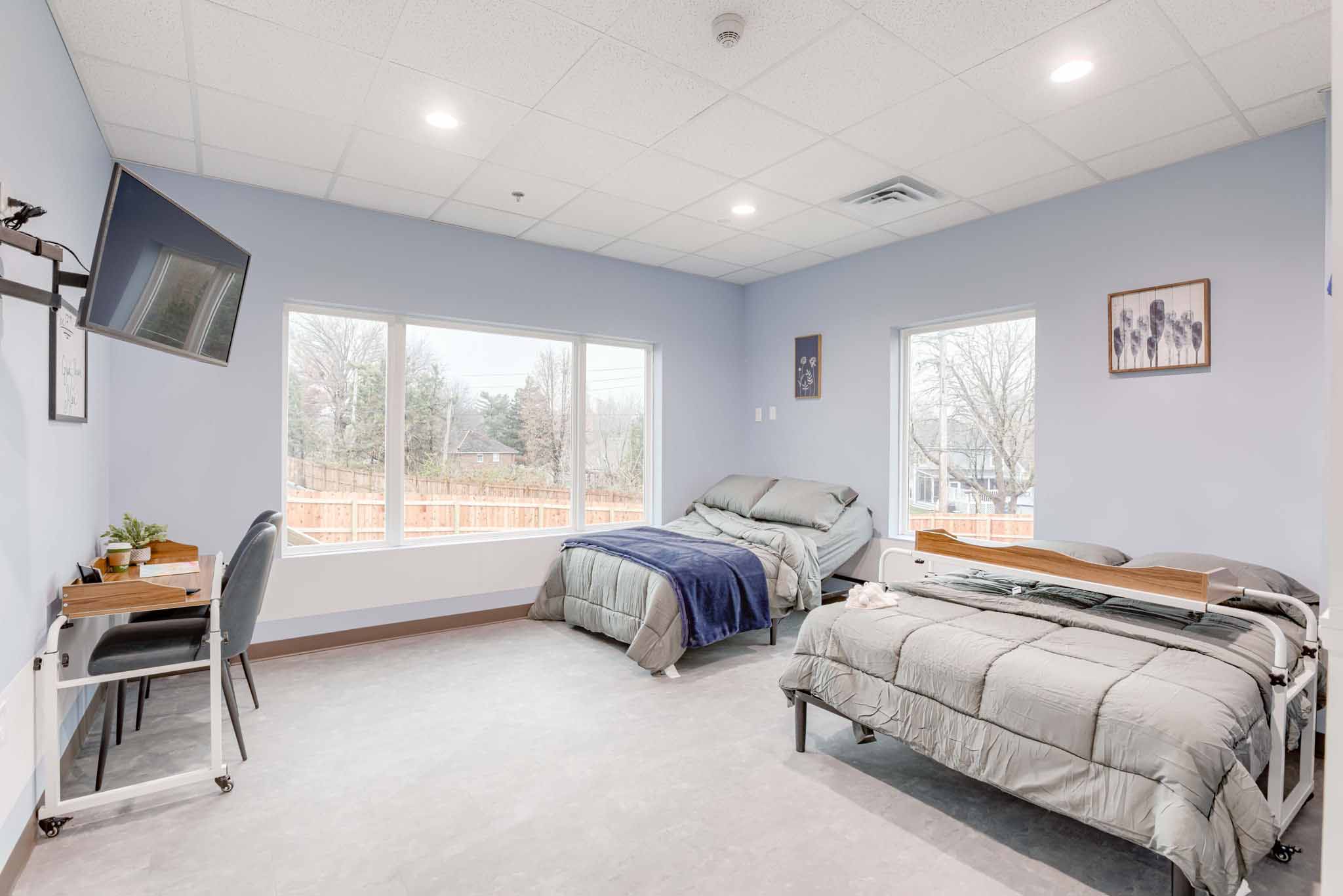Personality Disorders Treatment
for Substance Use Disorder
Our personalities are our own unique ways of thinking, behaving, feeling, and relating to other people. Once you reach adulthood, typically, your personality doesn’t change a lot. With personality disorders, there are long-term behavioral and thought patterns that are outside of what’s considered normal. Someone with a personality disorder may have behaviors and thoughts that aren’t healthy and are rigid and inflexible.

For a diagnosis of a personality disorder, there have to be things that deviate from cultural expectations to the point that it’s distressing or causes problems with functionality. These last over time, usually starting by late adolescence.
Personality disorders can contribute to problems at school or work, socially, and in relationships. It can be challenging to deal with day-to-day stress and problems.
There are treatment approaches that can help someone with a personality disorder to improve their quality of life and relationships.
Types of Personality Disorders
There are ten personality disorders grouped into three categories. These categories are known as clusters, with each cluster sharing similar characteristics and symptoms. Broadly, the symptoms of a personality disorder will affect at least two of the following areas:
- How someone thinks about themselves and other people
- Emotional responses
- Ways a person relates to others
- Behavioral control
Cluster A Personality Disorders
Cluster A personality disorder usually involves unusual thoughts and behaviors.
- Paranoid personality disorder includes an extreme fear and sense of distrust towards others, known as paranoia. This personality disorder can lead someone to believe others are trying to harm them
- Schizoid personality disorder is characterized by a preference to be alone. Someone with this disorder doesn’t have an interest in relationships with other people
- Schizotypal personality disorder includes unusual thoughts, behaviors, and speech patterns, as well as discomfort with interpersonal relationships
Cluster B Personality Disorders
These are defined by overly dramatic thoughts, behaviors, and emotions that change rapidly. The disorders include:
- Antisocial personality disorder is where someone has long-term patterns of exploiting or manipulating others or violating their rights. Lying, deception, and not conforming to social norms are symptoms, too
- Borderline personality disorder causes symptoms that make it hard for a person to control their emotions. They have a sense of uncertainty about their view of themselves, and they can behave impulsively and struggle in relationships. Someone with BPD might go to extremes to avoid abandonment. Other symptoms can include feelings of emptiness, intense anger, and suicide attempts
- Histrionic personality disorder includes dramatic and intense emotions and a constant desire to get attention from other people. The individual may not feel comfortable when they aren’t the center of attention
- Narcissistic personality disorder causes a lack of empathy and the desire for admiration from others. Other symptoms include an exaggerated sense of self-importance and entitlement and taking advantage of people
Cluster C Personality Disorders
These typically include anxiety and fearful behaviors and thoughts.
- Avoidant personality disorder leads to shyness and fears of inadequacy. Avoidant personality disorder can lead to avoiding others out of fear of rejection
- Dependent personality disorder causes someone to feel like they need to be taken care of, and they might accept poor treatment because they fear the loss of the relationship. Dependent personality disorder can make decision-making hard without reassurance from others. Helplessness when alone and a fear of taking care of themselves can occur as well
- Obsessive-compulsive personality disorder causes rigidity and the need for an excessive sense of control and order. This isn’t the same as obsessive-compulsive disorder
Why Do People Develop Personality Disorders?
The causes of personality disorders aren’t fully understood but may stem from childhood experiences and genetics.
It’s not easy for someone with a personality disorder to realize they have a problem because they see it as normal. That makes it more challenging for them to seek help because they can’t see things the way other people do.
A mental health provider can diagnose personality disorders, however, in order to do so requires a long-term evaluation of patterns of symptoms and function. People under 18 aren’t usually diagnosed with personality disorders because their personality is still developing.
Around 9% of adults in the U.S. have at least one personality disorder, and it’s possible to be diagnosed with more than one.
Treatment for Personality Disorders
Psychotherapy, also known as talk therapy, is one of the cornerstones of treating personality disorders. During talk therapy, a person gets knowledge and insight about their disorder and how it contributes to their symptoms. They can talk through varying behaviors, feelings, and thoughts, which helps them understand the effects of behaviors on other people. Talk therapy can also help reduce problematic behaviors that impair relationships and functionality.
Several types of talk therapy are evidence-based for the treatment of personality disorders, including:
- Psychoanalytic and psychodynamic therapy
- Cognitive behavioral therapy (CBT)
- Dialectical behavioral therapy (DBT)
- Group therapy
- Psychoeducation, where the person and their loved ones learn more about the diagnosis and coping strategies
There aren’t currently medications specifically for the treatment of personality disorders, but there may be situations when they’re helpful. Antidepressants, anti-anxiety medicines, or mood stabilizers may be part of a more comprehensive treatment plan.

Personality Disorder Treatment at Midwest Recovery Centers
Effectively treating personality disorders relies on an expert approach that’s multifaceted since personality is an ingrained part of who we are.
At Midwest Recovery Centers, we offer individualized treatment plans. Our 45-day programs take place in a structured, supportive residential environment, ideal for healing and recovery. This approach allows us to treat each person based on their unique needs.
During treatment with us, patients receive intensive therapy, learn coping and self-care strategies, and receive medication management. Our professionals integrate a combination of traditional, naturopathic, and holistic therapies. We treat the whole person rather than just their symptoms, considering physical, emotional, spiritual, and mental health.
We prepare patients to return to daily, independent living equipped with the tools they need to thrive and maintain their wellness.
At the conclusion of the 45-day program, our therapists and case managers continue to help patients as they transition to life outside of the program, ensuring they have the necessary support and guidance.
Contact us to learn more about personality disorder treatment at Midwest Recovery Centers




